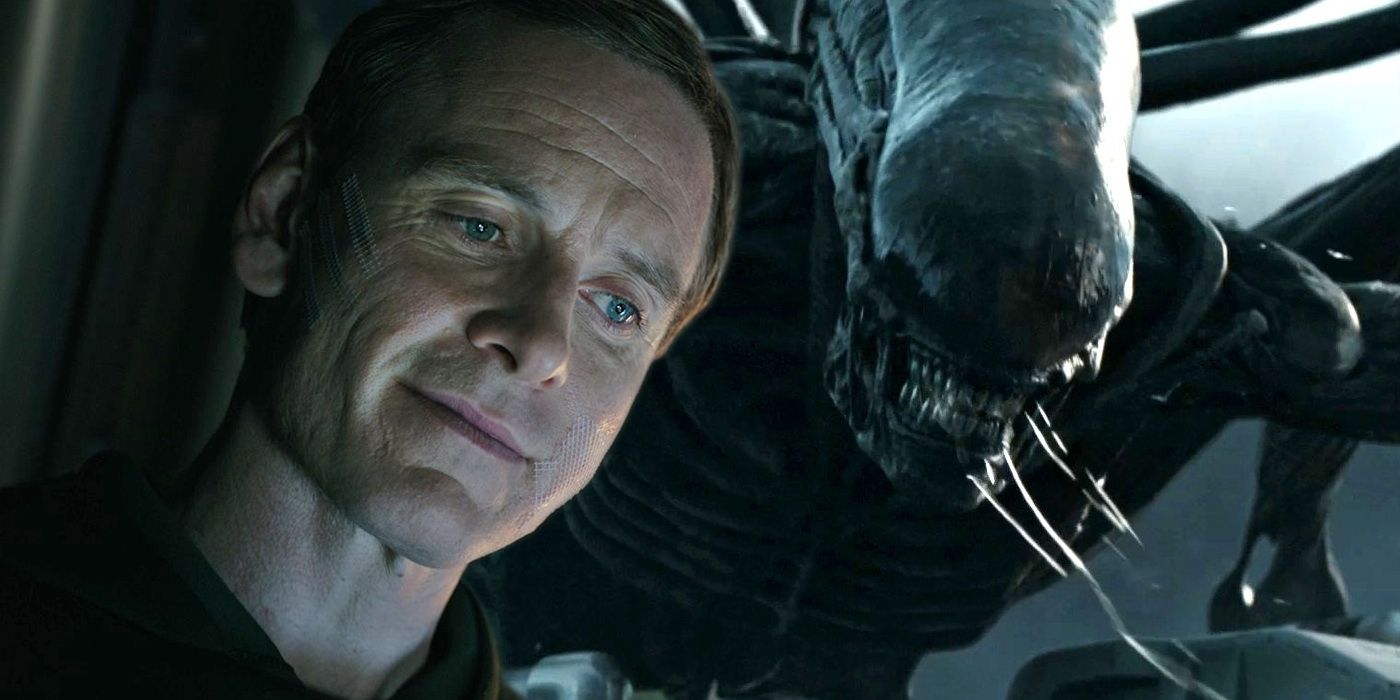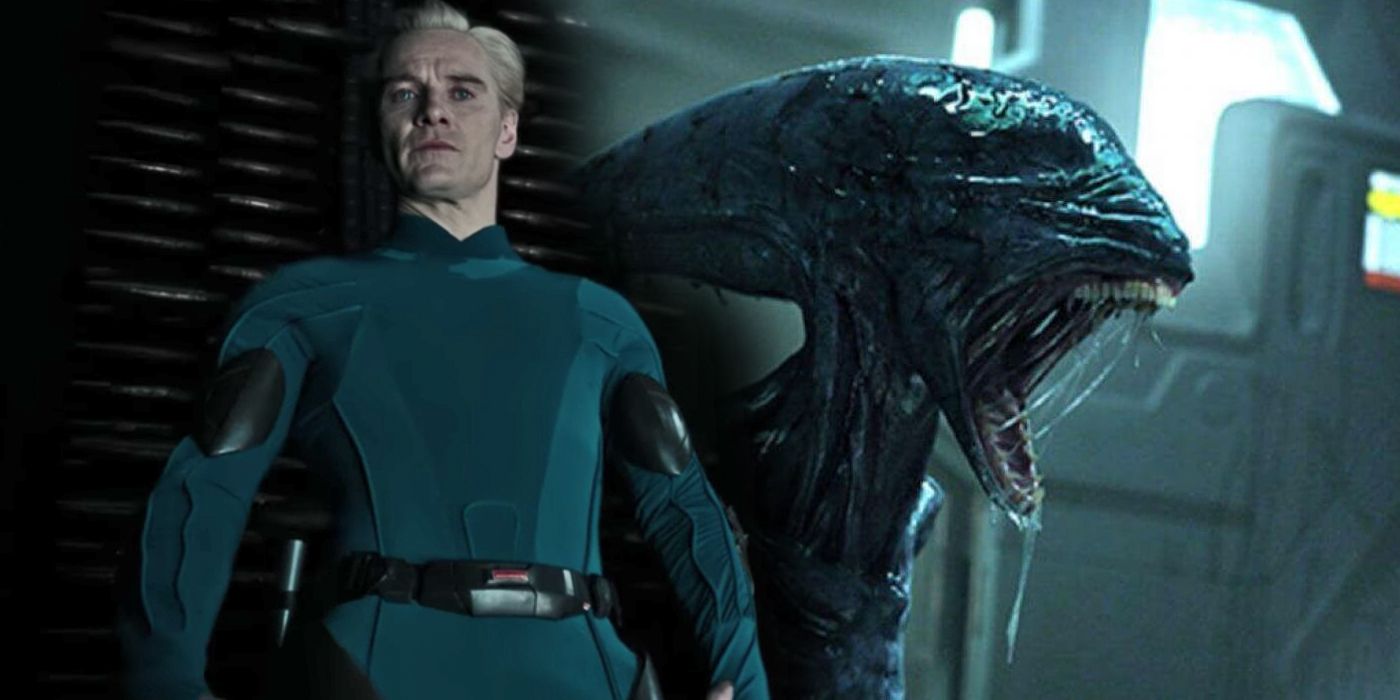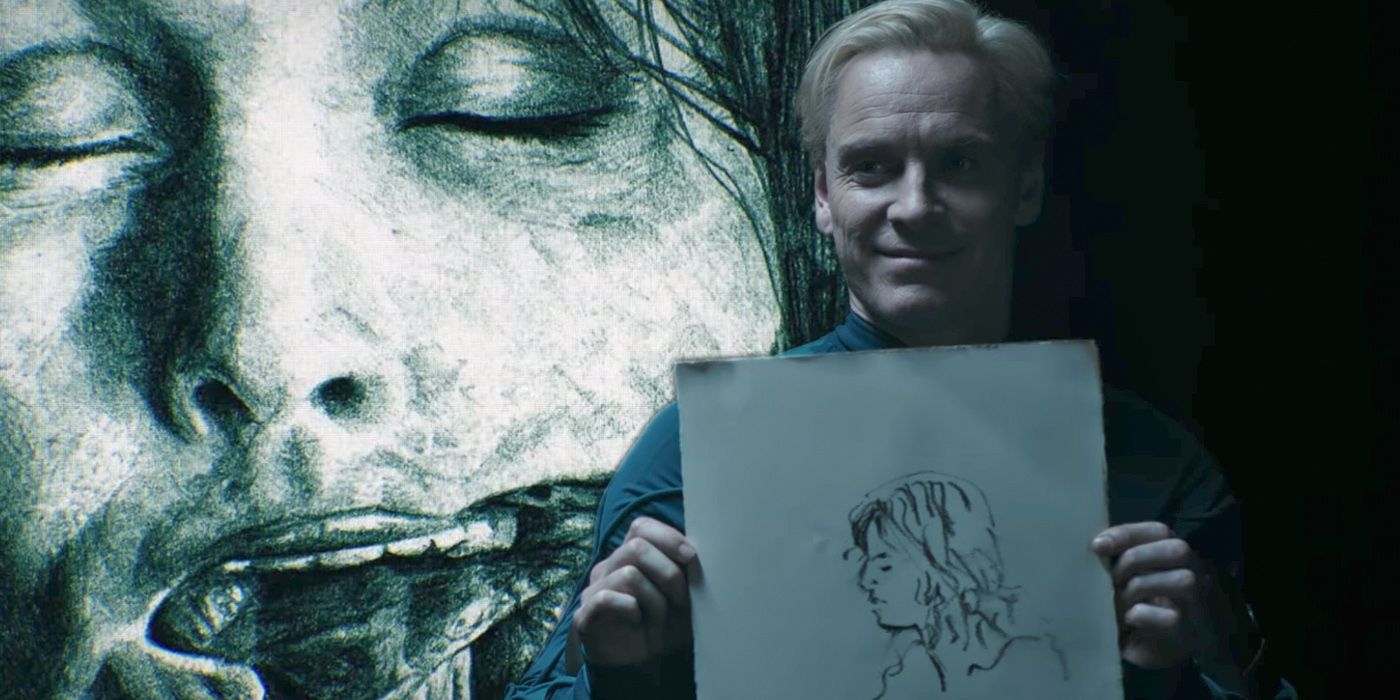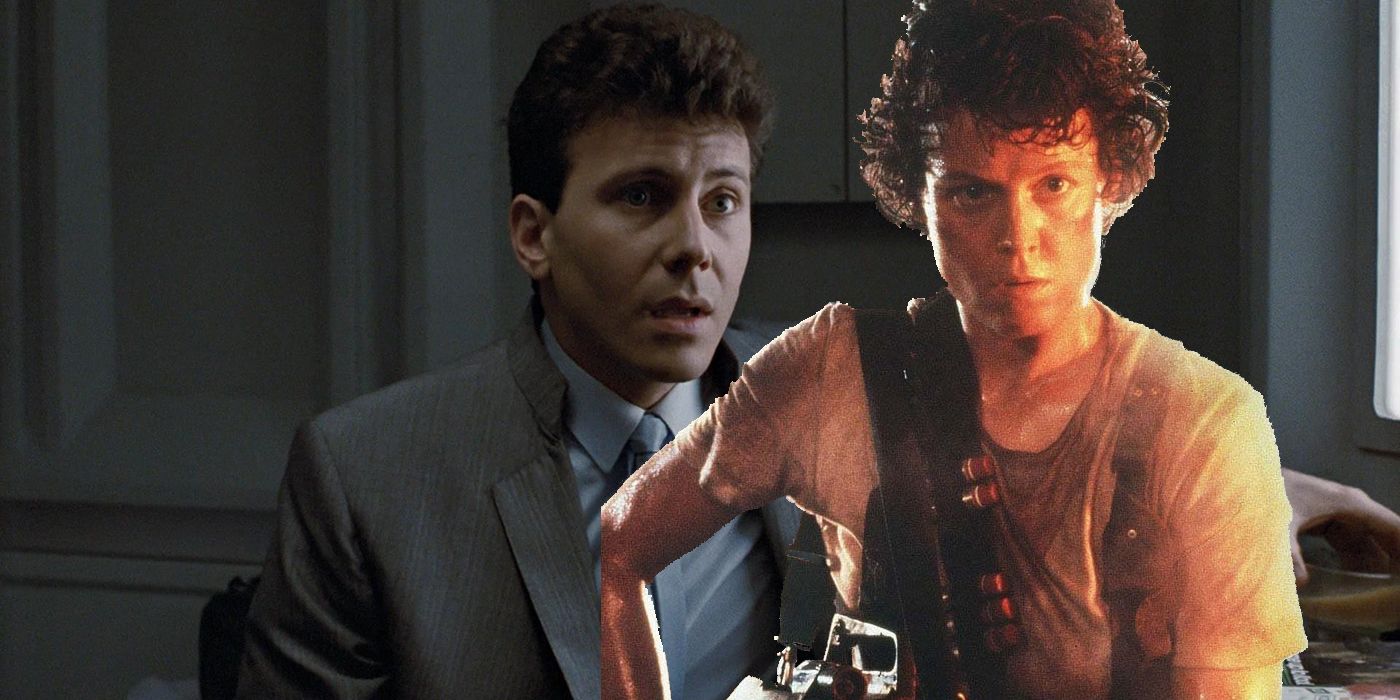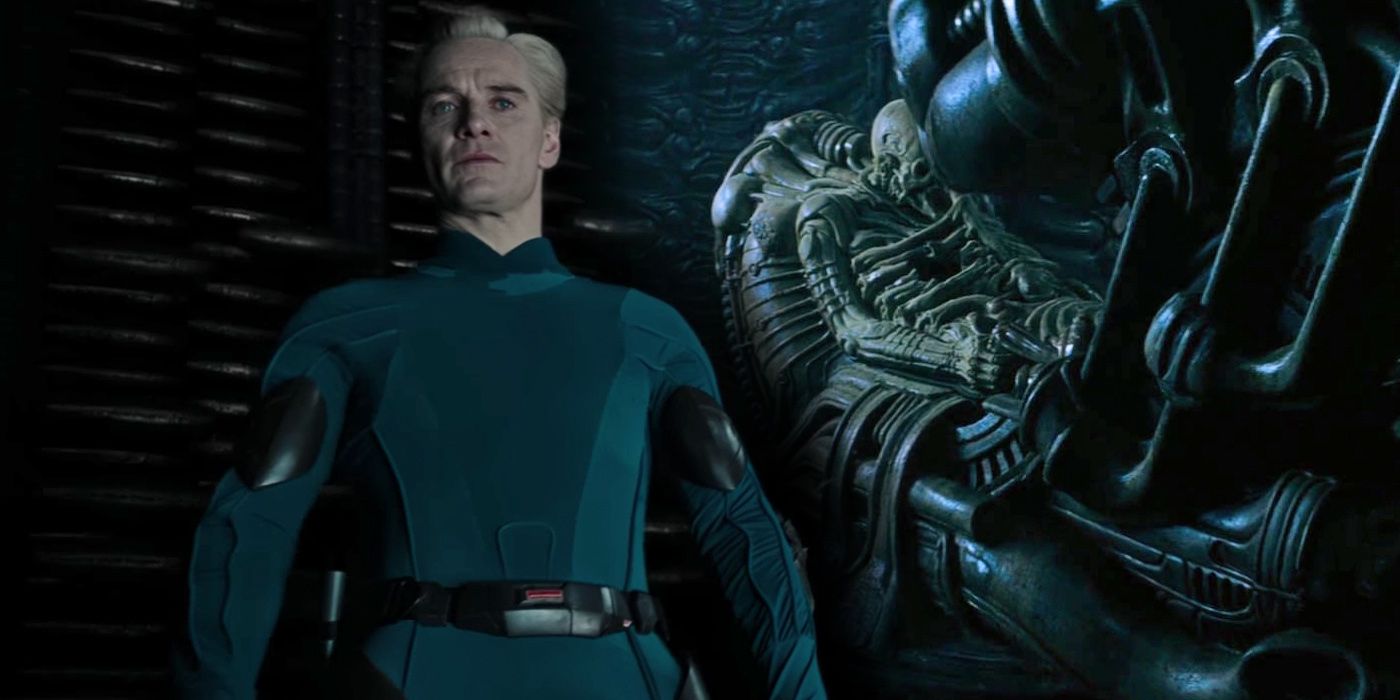The divisive 2017 sequel Alien: Covenant reveals that evil android David 8 is planning on breeding new Xenomorph hybrids to kill off much of the universe - but his plot doesn’t make much sense upon rewatch. Released in 1979, director Ridley Scott’s iconic “haunted house in space” sci-fi horror Alien introduced viewers to a legendary heroine in Sigourney Weaver’s Ripley and an equally famous monster with the terrifying titular Xenomorph. Alien later spawned a more action-oriented sequel in James Cameron's 1986 hit Aliens, which expanded the mythos and explored Weyland-Yutani's increasing desire to capture and study the infamous Xenomorphs for use as bioweapons.
Original director Scott returned to this territory in the complexly-plotted 2012 prequel Prometheus, but the movie’s 2017 sequel Alien: Covenant drove the overaching story of the series into a sizable plot hole. Around the midway point of Alien: Covenant, viewers discover that the overpowered android David (one of two robot characters played to creepy perfection by MVP Michael Fassbender) wants to turn the already-deadly Xenomorphs into perfect killing machines so he can unleash hell on the galaxy. He has been carrying out all manner of cross-breeds in his isolation since the events of Prometheus a few years earlier and intends on achieving this twisted goal via genetic experimentation.
David’s plot leads to the string of controversial Xenomorph hybrids being introduced throughout the brisk runtime of Alien: Covenant, but there’s a big problem with his plan that the movie never explains.
David Is Creating Xenomorph Bioweapons
While David was designed to work for the villainous Weyland-Yutani Corporation by "father" Peter Weyland (Guy Pearce), he alone is the one creating new aliens to kill countless victims. Given the other android Walter's (also Fassbender) horror on discovering his antics, it’s clear that not all androids share his predilection for gene-splicing and human sacrificing. As a result, the franchise-long villainy of the Weyland-Yutani corporation is somewhat ameliorated by the reveal that they aren’t the only ones seeking to use the creature as a bioweapon, since David is the one designing new, more dangerous Xenomorphs. However, the plot doesn’t just defang the famous Alien series baddies, the story also pokes a hole in itself during the ending of Alien: Covenant.
How Will David’s Alien Hybrids Survive?
Despite his alternations to their genetic makeup, it is made clear through the gruesome deaths of numerous Alien: Covenant cast members that the Xenomorph hybrids David has created still require a host to gestate. However, since the aliens are already an aggressive species and are only getting more aggressive via David’s experiments, how exactly does the android think they will be able to find hosts without just killing them off on the first encounter? Sure, the first aliens can use humans or other alien populations to gestate, killing them in the process, but once they run out of victims to gestate inside and eat, how will they survive? It’s clear from the Alien movies that the Xenomorphs and their Alien Queen are self-propagating if left to their own devices on their home planet, but if these new hybrids need a population to get through their gestation, they will only last as long as the population they prey upon. Thus, David will need to drop them from planet to planet, plan each destruction and then move on to the next, which even for the merciless android seems strangely pointless.
David’s Plan Derails The Alien Franchise
Throughout the Alien movies, it is made clear that Xenomorphs - although deadly - aren’t actively seeking out the company of humans and only attack when their territory is invaded. Instead of randomly savaging the ill-fated crews of the various ships destroyed throughout the Alien franchise, the series makes it clear Weyland-Yutani has actively sought to capture Xenomorphs so they can be studied and potentially used as bioweapons. It’s amoral for sure, but a believable step in military technology that makes sense because, as Paul Reiser’s infamously slimy Aliens character Carter Burke made clear, the corporation could care less who lives or dies once they turn a profit.
In contrast, David’s plan to unleash his homebrew hybrids on the galaxy and cause a mass death event (much like he did to the Engineers on their home planet) undercuts the recurring theme of humans seeking out more and more dangerous weapons and paying a bloody price for it. It’s not humanity’s fault David lost it while in isolation and opted to turn Dr. Shaw into a carrier to birth his new species and, although humans are responsible for David’s creation, Alien: Covenant’s twist does remove the responsibility from human hands and blames a malfunctioning android for the trail of gore left in the eponymous creature’s wake.
How David’s Alien Covenant Plan Could Make Sense
David’s Covenant plan doesn’t add up in terms of the recurring theme of humanity being the real villains in the Alien movies, and it’s not clear how he hopes to sustain his new hybrids once they run out of hosts. However, silly as David’s plan is, it does fit the android’s claim that he was inspired by Ozymandias. Considering his classical inspirations, the android might be aware there will be no way to keep his Xenomorph army growing after he wipes out every competing species, and because he was designed for use by an arms-dealing company, he may just not care about survivors or sustainability so much as inflicting maximum chaos and death on the galaxy.
This explanation, although never offered explicitly during Alien: Covenant itself, does offer a more thematically appropriate explanation for David’s destructive drive. The android was designed to maximize destructive potential without any regard for the future precisely because that is the sort of bug Weyland-Yutani might consider a feature. The franchise could reasonably argue that the reason David's plan doesn’t add up is that an arms dealing corporation wouldn’t design its androids to care about sustainability or morality when they could focus solely on causing more death with less cost.

